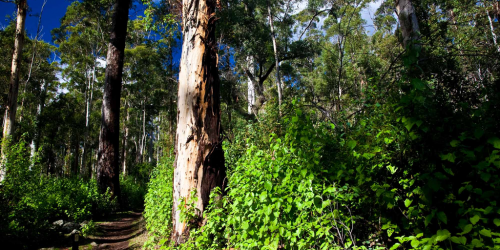Secretary Environment, Forests and Wildlife, Shahidullah Khan inaugurated the spring plantation campaign by planting an olive tree at Bajaur tribal district. Chief Conservator North One, Conservator Merged Areas, Deputy Commissioner Bajaur and Conservator Wildlife were also present on the occasion.
Speaking on the occasion, the secretary said forests play an important role in making the environment clean besides combating environmental pollution, desertification and climate change and urged people to actively participate in afforestation campaign by planting trees.
He said that the PTI government’s flagship 10 Billion Trees Afforestation Project has been extended to merged areas where its vast land would be utilised to achieve the set plantation target. Shahidullah added that the climate of merged areas especially of Bajaur was most suitable for olive plantation and concrete measures were being taken to promote olive farming in the district with assistance of Agriculture Department and district administration.
He said time was near when farmers of Bajaur would export edible oil to other provinces and overseas after fully tapping the potential of olives in the district.
An official of the Forest Department claimed that an inclusive plan has been chalked out to plant over 164 million saplings out of which 114 million are ready for plantation for spring season in the province.
K-P has been divided into three circles including central southern region-I Peshawar, northern forest region-II Abbottabad and Malakand forest region-III Swat where these saplings would be planted with the help of government departments, farmers, NGOs, general public and Forest Department under an umbrella of 10 Billion Trees Afforestation Project (10BTAP).
Central southern region-I Peshawar has been divided into southern forest circle and merged districts where 59,440,590 plants were raised out of which 39,608,880 were fit for plantation. In southern forest circle, as many as 19,269,239 plants were grown of which 11,833,694 were fit for plantation. Similarly, 40,171,351 plants were raised in merged areas out of which 27,775,186 were ready for plantation.
In northern forest region-II Abbottabad, as many as 61,626,025 plants were grown of which 44,939,351 were fit for plantation. Giving a breakdown of the northern forest region-I Abbottabad, the official said 12,366,182 plants are ready for plantation out of total 15,846,059 in Lower Hazara forest circle, 9,916,270 fit plants out of 15,043,710 plants in Upper Hazara forest circle and 22,656,899 fit plants out of 30,736,256 grown plants in Watershed Management Circle respectively.
In Malakand forest region-III Swat, as many as 43,773,927 plants were nurtured in departmental and private nurseries out of which 29,800,299 plants were ready for plantation. The official said 18.658 million saplings were planted during last monsoon season in the province with over 80pc survival rate. As many as 12,791,473 were planted in central southern region-I including 7,749,761 in southern forest circle and 5,041,712 in merged areas (erstwhile Fata) with 86 per cent survival rate respectively.
Similarly, in northern forest region-II, as many as 4,067,859 saplings including 1,412,064 in Lower Hazara forest circle, 587,445 in Upper Hazara forest circle and 2,068,350 in watershed management circle were planted having 80pc survival rate.
In Malakand forest region-III, the official said a total of 1,798,369 plants were planted during last monsoon including 1,190,919 in Malakand east forest circle and 607,450 in Malakand west forest circle respectively. As a result of successful completion of first phase of BTAP (2014-17), he said the total covered forest areas of K-P increased to a record 27 per cent in the province. He also highlighted how 27 per cent areas of K-P was now under forest cover against 20 per cent recorded in 2013.





